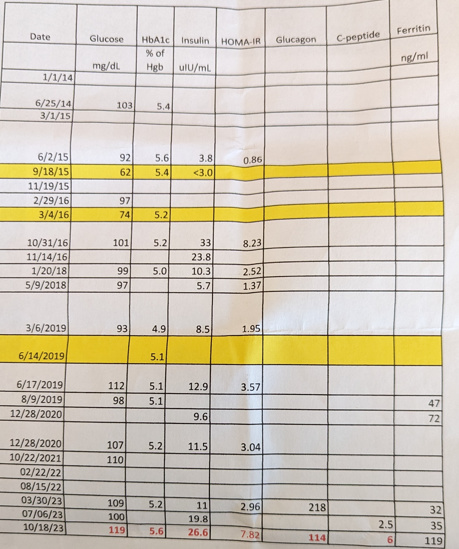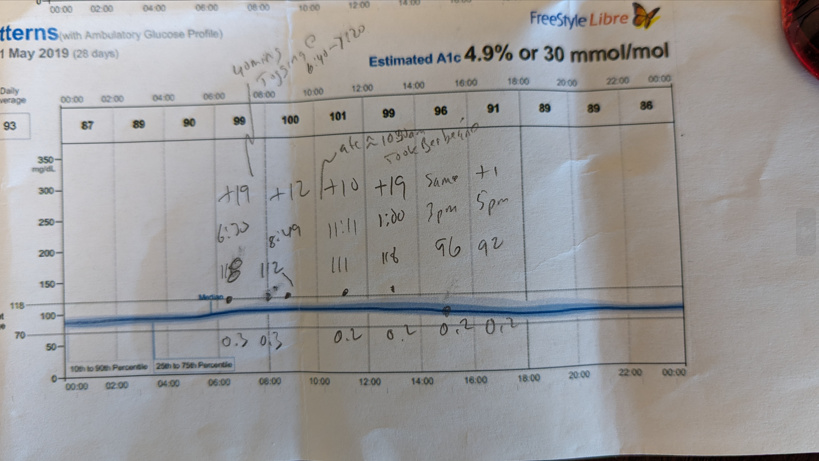My doctor does not listen to me. I had to start a different drug last year sometime, started low, built high. After this, my blood sugar, HbA1c, fasting insulin, and c-peptide all shot up. You can see it here:
My HbA1c had been around 5…for years. It went from 5.2 in March to 5.6 in October, and I am getting blood sugar levels about 20 points higher than where it used to be. My fasting insulin doubled. My c-peptide increased to 6. Normal c-peptide is <2. Mine went to triple that.
I have not changed my diet in years.
I tell the doctor this, and he says he’s seen no evidence that the new drug (which I titrated up, by the way, started low, went higher, then highest, over basically a year) does this. Well, I just presented evidence of it.
And he dismissed this with…you’re getting older.
HbA1c doesn’t go from 5.2 to 5.6 in about 6 months due to age. C-peptide does not triple due to age. Fasting insulin does not skyrocket due to age.
I am a person who has thousands of tests of blood sugar, ketones, blood pressure, etc. I bought a year’s supply of CGM from Sweden for over a thousand dollars so I could test my blood sugar. If I say a drug is adversely affecting my body via blood sugar, insulin, and c-peptide, believe me.
I plotted it the day before I went to see him. As you can see, my blood sugar starts about 20 points higher than it was a few years ago. I had my first meal and took some berberine. My blood sugar then comes down, possibly due to the berberine. Unfortunately, I have not been using berberine much and I have not been tracking blood sugar after taking it, the way I did this day. But my blood sugar is higher (the numbers below the blue line are ketones in mmol/l):
To all doctors out there: if a patient tells you something, believe them. Just believe them.
@PaulL Is this post searchable without an account? If not, please make it searchable to anyone on the Internet. It’s complete garbage that doctors don’t listen to their patient.



